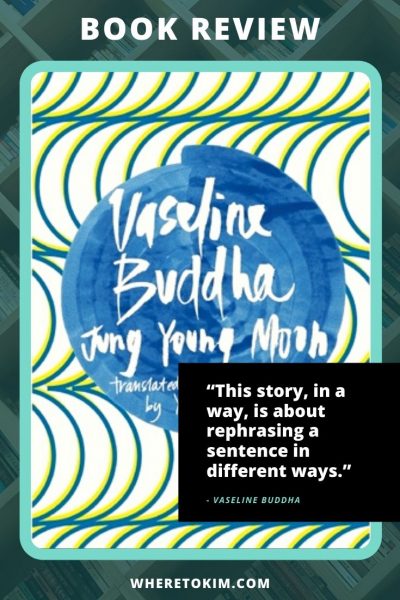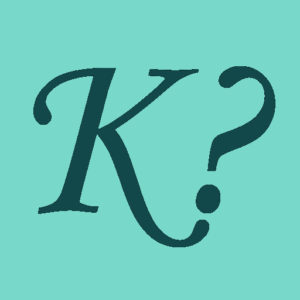If you like language games then Vaseline Buddha by Korean author Jung Young-moon is for you. Explore this surreal world and let your mind wander.
Location: all around the world but mostly in a small town in France
Vaseline Buddha Synopsis
A tragicomic odyssey told through free association scrubs the depths of the human psyche to achieve a higher level of consciousness equal to Zen meditation. The story opens when our sleepless narrator thwarts a would-be thief outside his moonlit window, then delves into his subconscious imagination to explore a variety of geographical and mental locations—real, unreal, surreal—to explore the very nature of reality.
Book review of Vaseline Buddha
“This story, in a way, is about rephrasing a sentence in different ways.” This quote from page 23 probably describes Vaseline Buddha best. The language is playing mind games; it uses wordplay and plays with words (see what I did there). I wish I could read it in Korean to experience it in the original language; it must be really intriguing. I bet it was a nearly impossible book to translate, kudos to the translator. You need 110% of your concentration to read this book and can’t spread it out over weeks or you’ll lose track.
As a Linguistics MA graduate, I loved the use of language in this book. As you keep reading, you start to think incomprehensibly yourself. It gets funnier the more you read. Don’t try to understand it; it is not always logical. There is circular reasoning within sentences and there is also a symbolic circle linking the start and end of the book. You follow the writer and the author’s thoughts (mind you, they’re two different people) and read about the act of writing but being kept from it by your own stream of thoughts. It is like you’re recording your thoughts every single second and naturally, that is very distracting when you want to focus on something.
Those were my notes for the first fifty or so pages. If you love languages and are looking for something different, then I recommend reading the first fifty pages and the last fifteen pages of this book. After the start of the book you get used to the concept and the story starts to lose its appeal. I read the whole book and found it interesting but not very entertaining (certainly not zen as the synopsis promises).
For those less interested in language games, it is quite a heavy read, very unlike your regular book of fiction. I wouldn’t recommend it.
So what is it about?
If you ask me what this book is about I’d say it’s about the concept of wandering. Not traveling with a goal in mind but simply wandering. You can almost say: blundering through the world while not creating too many attachments to other people or things. It is also about the ability to let go and a lack of inspiration. And like the wandering main character, the text wanders along. A linguistic expression of the topic of the book so to say, like visual poems visualize poetry.
Despite being an uninspired traveler, the main character traveled all across Europe and talks about his memories from visiting places like Rome, Amsterdam, Paris, Venice, Heidelberg, Neuschwanstein castle, Versailles, Hungary palace, but also New York and Nepal. Most time is spent in a small French town where he talks about his experience with not dating a certain French woman.
This is my attempt at describing the book and I look forward to yours.
Translated from Korean by Jung Yewon.
Interested?
You can get your copy of Vaseline Buddha from Amazon.







